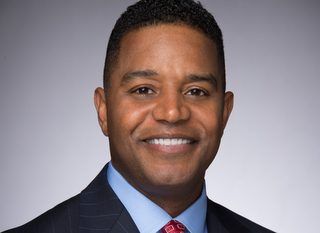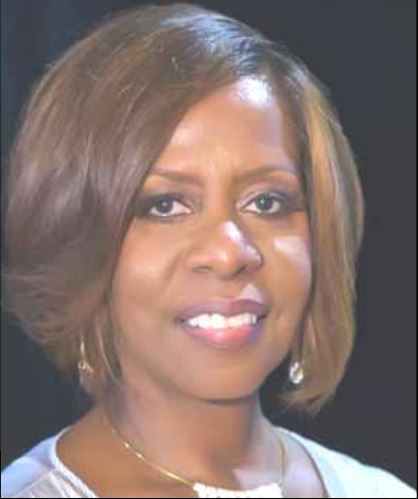[ad_1]

By Sharon Roberson Pinder
CEO, Capital Region Minority Supplier Development Council
Last December, the Exelon Corporation appointed Calvin G. Butler Jr., CEO of Baltimore Gas and Electric Company, as the new Senior Executive Vice President of Exelon and CEO of Exelon Utilities. Many of us were extremely proud and wanted a parade down Pratt Street! Butler’s ascension to one of the highest levels in one of America’s Fortune 100 corporations carries a symbolic resonance on Martin Luther King Jr.’s “I Have a Dream.” Throughout his life, Dr. King was committed to the fundamental ideals of racial equality.
As a transformational, servant leader, Butler is also committed. Like Dr. King, he believes that equality is not an option.

Butler has always admired how Dr. King lived his life. “King started from a spirit of humility,” says Butler. “He was able to inspire others by the optimism he saw for the future.”
Like Dr. King, Butler learned from his family. His father taught him to treat people with respect, and his mother consistently demonstrated empathy and compassion.
These lessons inspired him, as CEO, to use his position and influence to level the playing field. “I don’t think as a society or country we can advance, if we do not provide opportunities for everyone. I believe my purpose-driven mission in life is to ensure Black and Brown kids from disadvantaged homes have opportunities they can never imagine or think that they can achieve”.
“I believe this every day,” says Butler. “If I can be here, there is no reason you can’t. My job is to open your eyes to make sure you dream bigger than what you see. Shame on me if my ancestors sacrificed so much to provide opportunities, and I don’t continue to build on those opportunities for others.”
Butler has set the bar high and leaves a sustainable legacy to build upon.
When he began his tenure at BGE, minority leadership comprised of Butler and two women. The team he is leaving in place is the most diverse team of leaders in all of Exelon.
And then there is tangible proof.
After arriving in Baltimore in 2013, Butler began institutionalizing a corporate culture of diversity and inclusion. In 2019, BGE had over 40 percent of its supply spent with minority and women-owned businesses. When Butler began his tenure, it was floundering at 14 percent. Butler’s leadership has resulted in a significant increase in the number of women in vice president roles, as well as, African Americans and Hispanics in leadership roles.
As CEO, he did not accept anything less than achieving great results. Because of diversity and inclusion, BGE has had its best years financially, and in customer satisfaction.
What will the future bring?
In his new role, Butler is looking forward to addressing the challenge of community impact. He will look at how to leverage Exelon ($34 billion in revenue and 35,000 employees) while growing broader and deeper across all of its service territories.
Like Dr. King, Butler believes it is all by the grace of God.
********* ********* **********

Dr. Martin Luther King Jr.’s legacy of advocacy included fighting against economic injustice. He understood that economic freedom was at the core of equality. In 1963 he told the AFL-CIO that “Skin color and ethnicity should not divide those who work for a living.” Many scholars contend that economic justice is indeed the second phase of the civil rights movement.
As we celebrate Dr. King’s birthday, I am reminded of my decision in 2003 to change my career and dedicate my work to advocating for minority businesses. My decision was influenced in part by the blatant underutilization of minorities in government and commercial contracting and by the memory of my father as an entrepreneur during the Jim Crow era.
In 2003 I had the honor of being named Maryland’s first appointed cabinet-level Secretary and known as the architect of Maryland’s minority and small business reform movement. Today I serve as the President and CEO of the Capital Region Minority Supplier Development Council. Over the past 17 years, I have had the honor of working on implementing public policy and supporting thousands of minority businesses receiving billions of contracting dollars.
Unfortunately, fifty-two years after his assassination, economic injustice and poverty remains a barrier for us.
Sharon Roberson Pinder
[ad_2]
Source link
